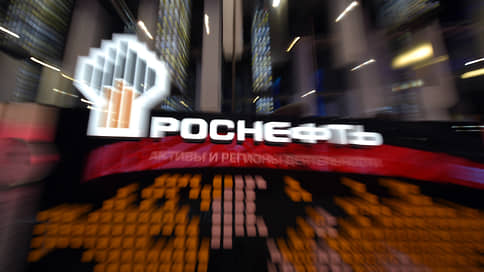Oil and gas chemistry stretches benefits – Newspaper Kommersant No. 18 (7463) of 02/01/2023
[ad_1]

According to Kommersant, Rosneft is proposing the government to extend the period of state support for processors of ethane and liquefied hydrocarbon gases. Now new processing projects can receive a reverse excise tax on raw materials only if the facility is commissioned before the end of 2027. Rosneft proposes to extend the deadline until the end of 2029 so that the Ufaorgsintez plant, which is part of Bashneft, can use the benefit. Potentially, the measure may also affect other projects.
Rosneft is asking the government to extend state support for petrochemical projects in the form of a reverse excise tax on the processing of ethane and LPG for two years. The head of the oil company, Igor Sechin, addressed Prime Minister Mikhail Mishustin with such a proposal, Kommersant sources familiar with the corresponding letter say. Mr. Sechin, in particular, proposes to extend support measures for the petrochemical project at Ufaorgsintez (part of Rosneft-owned Bashneft) until 2030, which involves the production of 300 thousand tons of ethylene, 250 thousand tons of polyethylene and 150 thousand tons of polyethylene. tons of polypropylene, due to the fact that the completion date of the project goes beyond 2028. Rosneft and the Energy Ministry declined to comment.
Since 2022, LPG and ethane processors have been able to claim a reverse excise tax on raw materials if they build new facilities for at least 300 thousand tons of raw materials per year or invest at least 65 billion rubles in modernization. Excise rates are set at 4.5 thousand rubles. per ton of LPG and 9 thousand rubles. per ton of ethane. At the same time, new capacities should be introduced before 2028. With investments of more than 110 billion rubles. companies claim to increase the reverse excise rate on LPG gradually to 7.5 thousand rubles. per ton from 2026. In order to receive state support measures, processors had to conclude an appropriate investment agreement with the Ministry of Energy, which estimated investments in petrochemical projects at 3.1 trillion rubles. If companies do not have time to introduce new capacities on time, they lose state support.
According to Kommersant, in accordance with the minutes of a meeting between Vladimir Putin and representatives of the oil and gas industry dated April 14, 2022, the government was instructed to support “large-scale processing projects that are in the investment phase” so that they are introduced on time. Thus, the president instructed to consider the possibility of increasing the reverse excise tax on raw materials for petrochemicals.
According to two interlocutors of Kommersant in the industry, it is likely that the need to shift the deadline for the completion of construction or modernization of plants is caused by the restriction of access to foreign technologies and equipment due to sanctions. The danger of a shift in terms arose after the EU, in response to the outbreak of hostilities in Ukraine, imposed sanctions against Russian oil refining and petrochemicals at the end of February 2022, banning the supply of equipment and technologies to the Russian Federation (see Kommersant dated February 28, 2022). In response, the government agreed last year to a two-year extension to refinery upgrades, during which refineries would continue to receive stimulus payments (a reverse oil excise tax and an investment surcharge).
If the total investment in the expansion of production at Ufaorgsintez does not exceed 110 billion rubles, the reverse excise rate on LPG will most likely be at the level of 4.5 thousand rubles. per ton of raw materials, according to a Kommersant source in the petrochemical industry. After the modernization of Ufaorgsintez, LPG consumption will increase from the current 100 thousand tons to about 250 thousand tons (the rest of the raw material, according to the company’s initial plans, falls on naphtha, for which the plant already receives a reverse excise tax). As a result, tax incentives will increase to 1.1 billion rubles. in year.
At the same time, Kommersant’s interlocutors do not exclude that Igor Sechin’s appeal could become an impetus for supporting the entire industry. “We have quite a lot of modernization projects underway: 21 plants have signed investment agreements for modernization, a large number of petrochemical projects are being built, and, naturally, they have faced certain challenges due to the actions of unfriendly countries. But almost everywhere there are solutions,” Pavel Sorokin, the first deputy head of the Ministry of Energy, said in July 2022. According to one of Kommersant’s sources, theoretically, “projects aimed at the use of light raw materials” may be interested in extending the term of reverse excises: for example, the Amur GCC of SIBUR and the Irkutsk Polymer Plant of the Irkutsk Oil Company.
[ad_2]
Source link





